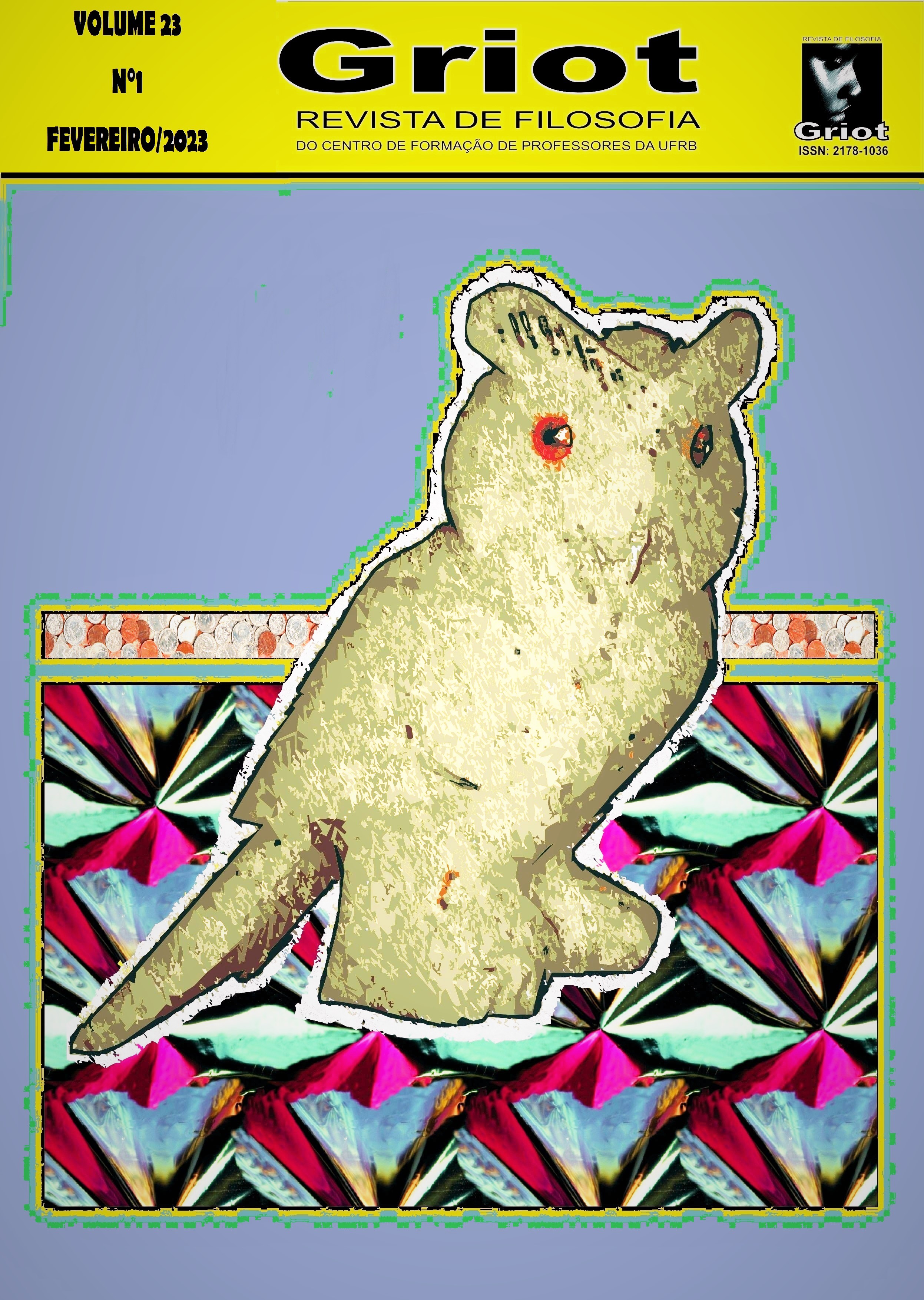Os desafios da sorte epistêmica e uma possível solução por meio da epistemologia das virtudes
DOI :
https://doi.org/10.31977/grirfi.v23i1.3119Mots-clés :
Sorte Epistêmica; Epistemologia das Virtudes; Edmund Gettier; John Greco; Duncan Pritchard.Résumé
Conhecimento e sorte parecem dois conceitos excludentes, isto é, em ordem de atribuirmos conhecimento a alguém, tal sucesso cognitivo deve excluir elementos de sorte da aquisição intelectual. Entretanto, desde o artigo de Edmund Gettier “Is Justified True Belief Knowledge?” (1963), tem se reconhecido cada vez mais a envergadura que elementos de sorte assume no conhecimento, a ponto de chegarmos a uma conclusão cética no campo epistemológico. A questão que fica, então, é como solucionar a atribuição de conhecimento, com fatores de sorte praticamente onipresentes. Dito isso, o objetivo do trabalho será dois: (i) primeiro, irei expor os desdobramentos do debate da sorte epistêmica, ou seja, mostrar sua amplitude, classificações, conceituação e algumas respostas ao problema. Após (ii) pretendo argumentar sobre as vantagens de se abordar a sorte epistêmica fora do campo proposicional a partir de uma abordagem da epistemologia das virtudes que foque em outros bens epistêmicos além da crença verdadeira.
Téléchargements
Références
BAERH, Jason. Four Varieties of Character-Based Virtue Epistemology. The Southern Journal of Philosophy, v.46, p.469-502, 2008.
CHENEY, Margaret. Tesla: man out of time. New York: Barnes & Nobles Books, 1981.
CHISHOLM, Roderick. Theory of Knowledge. 3a ed. New Jersey: Prentice-Hall International Editions, 1989.
CODE, Lorraine. Toward a ‘Responsabilist’ Epistemology. Philosophy and Phenomenological Research, v.45, n.1, p.29-50, 1984.
ENGEL, Mylan Jr. Epistemic Luck. Internet Encyclopedia of Philosophy. Disponível em: <https://iep.utm.edu/epi-luck/>. Acesso em: 20 ago. 2022.
FRENCH, Steven. Ciência: conceitos-chave em filosofia. Porto Alegre: Artmed, 2009.
GETTIER, Edmund. Is Justified Truth Belief Knowledge? Analysis, v.23, n.6, p.121-123, 1963.
GLANZBERG, Michael. Truth. Stanford Encyclopedia of Philosophy. Disponível em: <https://plato.stanford.edu/entries/truth/>. Acesso em: 25 set. 2020.
GRECO, John. Knowledge as Credit for True Belief. In: DEPAUL, Michael; ZAGZEBSKI, Linda. Intelectual Virtue: Perspectives from Ethics and Epistemology. Oxford: Oxford University Press, 2003. p.111-134.
GRECO, John. Achieving Knowledge: A Virtue-Theoretic Account of Epistemic Normativity. Cambridge: Cambridge University Press, 2010.
GRECO, John. A (different) Virtue Epistemology. Philosophy and Phenomenological Research, v.85, n.1, p.1-26, 2012.
ICHIKAWA, Jonathan Jenkins; STEUP, Matthias. The Analisys of Knowledge. Stanford Encyclopedia of Philosophy. Disponível em: <https://plato.stanford.edu/entries/knowledge-analysis/>. Acesso em: 09 nov. 2020.
NAGEL, Thomas. Moral Luck. In: STATMAN, Daniel. Moral Luck. Albany: State University of New York Press, 1993. p.57-71.
PLATÃO. Teeteto e Cratilo. Tradução de Carlos Alberto Nunes. Belém: Universidade Federal do Pará, 1988.
PRITCHARD, Duncan. Epistemic Luck. Clarendon Press: Oxford, 2005.
PRITCHARD, Duncan. What is this thing called Knowledge. London e New York: Routledge, 2006a.
PRITCHARD, Duncan. Moral and Epistemic Luck. Metaphilosophy, v.37, n.1, p.1-25, 2006b.
PRITCHARD, Duncan. Safety-based epistemology: whither now? Journal of Philosophical Research, v.6, p.33-45, 2009.
PRITCHARD, Duncan. Anti-luck virtue epistemology. Journal of Philosophy, v.109, n.3, p.247-279, 2012. Disponível em: < https://www.pure.ed.ac.uk/ws/portalfiles/portal/9347259/PRITCHARD_2012_Anti_luck_virtue_epistemology.pdf >. Acesso em: 12 nov. 2020.
PRITCHARD, Duncan. Knowledge, Luck, and Virtue: Resolving the Gettier Problem. In: BORGES, Rodrigo; ALMEIDA, Cláudio de; KLEIN, Peter D. Explaing Knowledge: New Essays on the Gettier Problem. United Kingdom: Oxford University Press, 2017. p.57-73.
PRITCHARD, Duncan. Modal Accounts of Luck. In: CHURCH, Ian M; HARTMAN, Robert J. The Routledge Handbook of the Philosophy and Psychology of Luck. New York e London: Routledge, 2019. p.115-124.
ROBERTS, Robert C.; WOOD, W. Jay. Intellectual Virtues: An Essay in Regulative Epistemology. New York: Oxford University Press, 2007.
RUSSELL, Bernard. Human Knowledge: its scope and limits. Routledge, 2009.
SCHWITZGEBEL, Eric. Belief. Stanford Encyclopedia of Philosophy. Disponível em: <https://plato.stanford.edu/entries/belief/>. Acesso em: 03 nov. 2019.
STATMAN, Daniel. Moral and Epistemic Luck. Ratio. v.4 n.2, p.146-156, 1991.
STATMAN, Daniel. The Definition of Luck and the Problem of Moral Luck. In: CHURCH, Ian M; HARTMAN, Robert J. The Routledge Handbook of the Philosophy and Psychology of Luck. New York e London: Routledge, 2019. p.195-205.
THE TRUMAN SHOW. Director: Peter Weir; Produção: Scott Rudin, et al. Produtora: Paramount Pictures; Scott Rudin Productions, 1998. 1 DVD (103 min), color.
TURRI, John; ALFANO, Mark; GRECO, John. Virtue Epistemology. Stanford Encyclopedia of Philosophy. Disponível em: <https://plato.stanford.edu/entries/epistemology-virtue/>. Acesso em: 14 out. 2020.
UNGER, Peter. An Analysis of Factual Knowledge. The Journal of Philosophy. v.65, n.6, p.157-170, 1968.
WILLIAMS, Bernard. Moral Luck. In: STATMAN, Daniel. Moral Luck. Albany: State University of New York Press, 1993. p.35-55.
ZAGZEBSKI, Linda. Virtues of Mind: An inquiry into the nature of virtue and the ethical foundations of knowledge. Cambridge: Cambridge University Press, 1996.
Téléchargements
Publiée
Comment citer
Numéro
Rubrique
Licence
(c) Tous droits réservés João Victor Rosauro 2023

Ce travail est disponible sous la licence Creative Commons Attribution 4.0 International .
Les auteurs qui publient dans le Griot: Revista de Filosofia conserve les droits d'auteur et accorde au periodique le droit de première publication, avec l'œuvre simultanément sous licence Creative Commons Attribution 4.0 International License, permettant Le partage et l'adaptation, même à des fins commerciales, avec une reconnaissance régulière de la paternité et de la publication initiale dans ce journal. Lire la suite...









































































